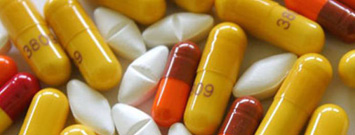Preventing HIV Through Testing, Care and Treatment
 World AIDS Day, Dec. 1st calls us to action for HIV prevention. This edition of Vital Signs addresses HIV prevention through testing, care and treatment to improve health of people with HIV and save lives.
World AIDS Day, Dec. 1st calls us to action for HIV prevention. This edition of Vital Signs addresses HIV prevention through testing, care and treatment to improve health of people with HIV and save lives.
World AIDS Day Serves as a Call to Action
World AIDS Day provides us with a time to reflect on the impact of HIV, the lessons learned, the lives saved and lives lost. It is also a call to action to continue to improve our efforts to prevent HIV. As part of CDC's HIV prevention efforts, this Vital Signs calls everyone to get an HIV test and those with HIV to get medical care that can save their lives and the lives of others.
 HIV Testing + HIV Medical Treatment+ Prevention Counseling = Fewer HIV infections, better health and longer life.
HIV Testing + HIV Medical Treatment+ Prevention Counseling = Fewer HIV infections, better health and longer life.
HIV Testing- Too many people don't know they have HIV.
An estimated 1.2 million people are living with HIV in the United States. Of those, as many as 1 in 5 people (about 240,000) don't know they have HIV. CDC recommends that all Americans between the ages of 13-64 be tested for HIV at least once as part of regular medical care. Others at greater risk (those with more than one sex partner, who inject drugs or are a men who has sex with other men) should get tested once a year or more often. Testing early can lead to timely care and treatment that can improve the health of a person with HIV and prevent giving the virus to others. Without testing, people who have HIV and don't know it won't be able to get care and treatment. They also will be at greater risk for serious health problems and early death with HIV, and can give the virus to others without knowing it.
Medical Care and Treatment- There is hope
HIV testing is a critical step in the prevention of HIV, but just as important is what happens after the test. HIV medical care and prevention counseling can improve health, increase survival and prevent the spread of HIV. Most people with HIV receiving care are given medicine (antiretroviral therapy, ART) that lowers the amount of the virus in the body. In fact, 77% of patients given ART have very low amounts of the virus in their bodies. Low amounts of the virus in the body leads to improved health and much longer lives for people with HIV and can help prevent the passing of the virus to others. Yet, only half of people with HIV are in care and only 28% have their virus under control.
Counseling and Prevention
Prevention counseling works, yet only 45% of people with HIV in care received prevention counseling in the previous 12 months on how to protect themselves and prevent passing the virus to others.
 Call to Action
Call to Action
This issue of CDC Vital Signs on HIV and AIDS provides important action steps for all of us:
- Everyone can ask your doctor for an HIV test and learn how to protect yourself and others. If you have HIV, seek medical care as soon as possible.
- Health Departments and Communities can create programs and policies that encourage and support HIV testing and getting everyone with HIV into medical care and prevention counseling/services.
- Healthcare providers can offer patients HIV tests as a regular part of medical care, provide appropriate medication to patients with HIV and make sure the virus is reduced to very low levels. They can also provide prevention counseling and services to help prevent the spread of HIV.
More Information
- CDC HIV/AIDS
- CDC Global HIV/AIDS
- World AIDS Day Statement from the White House
- CDC Vital Signs Report on HIV in the United States
- CDC Basic HIV Information
Learn about HIV/AIDS, how it is and is not transmitted, the risk factors for HIV transmission, preventing transmission and the symptoms of HIV infection.
CDC Fact Sheets:
- HIV in the United States
- HIV in the United States en espanol (VIH/SIDA en los Estados Unidos)
- For the World AIDS Day Morbidity and Mortality Weekly Report
- CDC National HIV Testing Database
- Act Against AIDS
- AIDS.gov
- CDC Radio Vital Signs PSA for World AIDS Day [PODCAST - 0:30 seconds]
CDC works 24/7 saving lives and protecting people from health threats to have a more secure nation. A US federal agency, CDC helps make the healthy choice the easy choice by putting science and prevention into action. CDC works to help people live longer, healthier and more productive lives.
Get email updates
To receive email updates about this page, enter your email address:
Contact Us:
- Centers for Disease Control and Prevention
1600 Clifton Rd
Atlanta, GA 30333 - 800-CDC-INFO
(800-232-4636)
TTY: (888) 232-6348 - cdcinfo@cdc.gov




